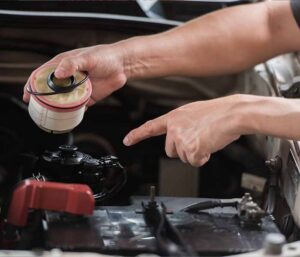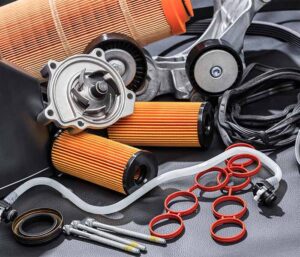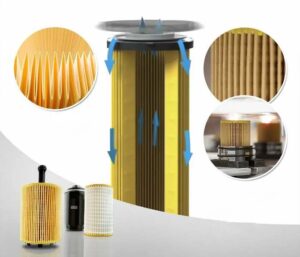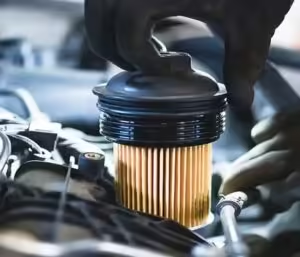A complete analysis of car filters: Do you understand your car’s “breathing system”?
In modern society, cars have long become an indispensable part of family travel and urban transportation. However, many car owners lack in-depth knowledge of vehicle maintenance. In particular, the car filter, often called the “breathing system” of the engine, is often overlooked. Did you know that a seemingly insignificant filter can directly determine your engine lifespan, fuel economy, and even the air quality inside your car?
Today, we’ll systematically explore the types of car filters, their functions, maintenance cycles, and purchasing recommendations, helping you thoroughly understand this “protective barrier” hidden under the hood.
What is a car filter? Why is it so important?
Automotive filters are critical components designed to filter impurities from various liquids and gases. Their primary function is to prevent contaminants such as dust, metal shavings, and moisture from entering the engine system during operation, ensuring efficient operation and extending the life of mechanical parts.
The operating environment of a vehicle is complex. The air contains dust, pollen, and sand, the fuel may be contaminated with impurities, and the lubricating oil can also accumulate contaminants as it circulates. If these contaminants enter the engine or air conditioning system untreated, they can not only affect vehicle performance but, in severe cases, cause engine damage or passenger health problems.
Thus, while filters are inexpensive, they are a crucial component of vehicle maintenance that cannot be overlooked.
Four types of automotive filters
Cars are typically equipped with the following four types of filters, each with a specific task.
1.Air filter
Function: Filters air entering the engine’s combustion chamber, preventing the entry of dust, sand, and other particulate matter that could affect combustion efficiency and engine wear.
Features: Typically constructed of pleated paper or composite filter media, these filters are installed in the intake manifold and are among the most frequently used filters.
Impact: A clogged air filter can lead to insufficient air supply, a richer mixture, increased fuel consumption, and reduced power.
2.Oil filter
Function: Filters metal shavings, oxides, and sediment from the lubricating oil, keeping the oil clean and protecting internal engine parts.
Features: Available in two types: full-flow (filters all oil) and bypass (filters a portion of the oil). Modern vehicles generally use a full-flow design.
Impact: A clogged filter element can affect oil circulation, leading to insufficient lubrication and even oil burning.
3.Fuel filter
Function: Purifies impurities and moisture from gasoline or diesel, preventing injector clogging and fuel system corrosion, and improving combustion efficiency.
Features: Gasoline and diesel vehicle filter elements differ in structure. Diesel filters often include a water separator, making them even more critical.
Impact: Incomplete fuel filtration can easily lead to starting difficulties, insufficient power, and excessive exhaust emissions.
4.Cabin filter
Function: Purifies the air entering the vehicle cabin, filtering out dust, pollen, PM2.5, and odors, enhancing passenger comfort and overall well-being.
Features: Some high-end models use activated carbon or HEPA filters, which remove bacteria and odors.
Impact: A clogged filter can weaken the air conditioning system, increase odors, and even cause breathing discomfort.
Misconception: Poor quality filters ≠ saving money
Many car owners buy cheap, off-brand filters online, even thinking, “A filter element is just a piece of paper.” In fact, the quality of a filter directly impacts the cost of using a vehicle.
The hazards of low-quality filters include:
Sparse filter paper leads to low filtration efficiency, allowing foreign matter to easily penetrate;
Poor seals cause oil and air leaks;
Low dust holding capacity requires frequent replacement;
Improper structural design can easily lead to system failures.
Saves of just a few dollars could potentially result in repair costs exceeding thousands or even higher. Rather than replacing low-quality filters three times, it’s better to choose the right brand filter once.
- When choosing a filter, consider these key points:
Brand reputation: Choose reputable brands, such as Bosch, MANN, and Dunwei, whose products come with quality certifications and reliable after-sales service.
Certification standards: Check for compliance with quality systems such as ISO9001 and IATF16949.
Accuracy: Pay attention to the filtration efficiency rating, such as “99.97% @ 5μm,” which is considered a high-end standard in the industry.
Material structure: High-quality filters often utilize multiple layers of high-density filter paper and a metal frame structure, offering pressure and heat resistance.
Compatibility: Confirm that the product model is fully compatible with your vehicle to avoid purchasing the wrong one.
- Trivia You Might Not Know
Some high-end air filters can also protect against haze and PM2.5, and even have built-in negative ion generators.
The frequency of cabin air filter replacement affects the risk of allergies in children in the vehicle.
A severely clogged fuel filter can cause the vehicle to shake or even stall.
If water enters the filter of a diesel vehicle, it must be replaced immediately, otherwise the fuel injectors may become useless.




